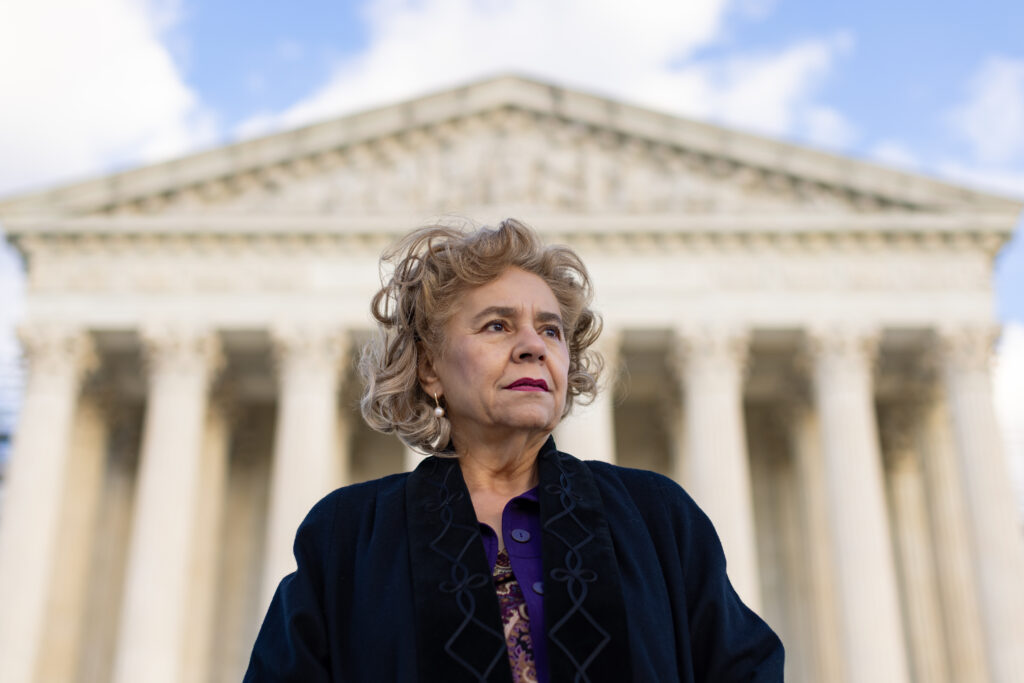
The Price of Speaking Up: The Arrest and Legal Battle of Sylvia Gonzalez, Castle Hills’ First Latina Council Member
Like many other public citizens have done before, Sylvia Gonzalez campaigned for the council member position. She won fair and square the position to represent her community in Castle Hills, Texas. However, when she dared speak the truth to power, the city got her arrested.
Since 2019, Gonzalez has been fighting for her freedom and justice after her arrest following her criticism of a senior official. According to legal documents, she was charged with “inappropriately removing a government document.” While Gonzalez had no criminal record, she spent a day in jail. And all went downhill from there.
Now, her case has made national news, and the Supreme Court is considering her claims that the retaliation she experienced for expressing her complaints against the city manager, Ryan Rapelye, violated the Constitution’s First Amendment.
A Latina’s fight against systemic corruption
Sylvia Gonzalez had a fulfilling career in communications when she decided to run for a seat on the city council in Castle Hills, Texas. At 70, she knocked on the doors of 500 residents and won, becoming the first Latina to become a council member in her hometown.
“When I ran for office in 2019, I simply wanted to serve,” Gonzalez wrote in an op-ed. “Neighbors had complained about poor infrastructure and a lack of responsiveness at City Hall. I had time to get involved as a retiree, so I ran to join the city council.”
Along with her supporters, Gonzalez organized a petition drive to remove Rapelye. Citizens had been vocal in their criticism of the local official for mistreating his employees and “failing to address citizens’ concerns, such as fixing their streets.”
However, as the Institute for Justice (IJ) explains, the petition “did not sit well with Castle Hills’ incumbents,” whose interests were “well-represented” by the city manager. The nonprofit representing Gonzalez explained that, within weeks of winning her election, “the harassment began.”

Despite doing nothing wrong, Gonzalez was silenced by every means possible
After realizing that Gonzalez’s moral compass threatened private interests, the city attorney claimed she “wasn’t properly sworn in.” He replaced her on the city council with the woman she’d just beaten. Even after a judge reinstated Gonzalez, the city officials “didn’t give up,” the IJ explained.
The mayor and police chief then accused Sylvia Gonzalez of illegally removing a government document. The county prosecutor dropped the case, but then a group of citizens supported a lawsuit the mayor filed claiming she was incompetent. She won again, but her reputation didn’t survive.
“I had no intention of backing down from my vow to reform the city’s political culture,” Gonzalez wrote. “So, after my election, I submitted the petition and invited feedback. The response was hostile. Politically connected citizens shouted during a public meeting. And people in power plotted revenge.”
“Their chance came at the conclusion of the first meeting, when I inadvertently picked up the petition from a stack of papers on the dais. I made this mistake with no criminal intent, but my accusers called me a thief.”
With thousands of dollars in legal bills, Gonzalez thought it was maybe time to give up. However, her partnership with the Institute for Justice on September 29, 2020, gave her new hope.
The IJ assured that “the city’s retaliation clearly violates Sylvia’s First Amendment rights. “If America’s democracy means anything at all, it means that a city can’t arrest its residents for speaking out against a city manager.”

A legal fight becomes a cautionary tale
After three years of fighting the government, the U.S. Supreme Court granted Sylvia a chance to prove her innocence on October 13, 2023.
She finally got her day in court last Wednesday, bringing a crucial question to the forefront: Can people who criticize the government sue local officials over retaliatory arrests?
While it sounds like a no-brainer, Sylvia Gonzalez’s experience tells another story.
After Gonzalez resigned from the council and sued Castle Hills and several of its officials, the problem was proving her retaliatory arrest claims. She accused Major JR Treviño and the police chief of arresting her “in retaliation for exercising her First Amendment rights,” the Texas Tribune reported.
While there was a legal precedent in the Nieves v. Barlett case of 2019, the 5th Circuit sided with the city government and their probable cause.
Finally, last Wednesday, several members of the Supreme Court “appeared to be searching for a way” to let Gonzalez sue the mayor, CNN reported.
“But after nearly 90 minutes of oral argument, it wasn’t fully clear how the court would rule in the case,” the outlet wrote, “which could have consequences that sweep far wider than the small-city political dispute at the center of the case.”
According to Gonzalez’s attorney, the court’s decision “could have startling consequences” if it gives city officials “more latitude to arrest critics.”
“Political retaliation is dangerous. The First Amendment has to mean something,” said Anya Bidwell, an attorney at the Institute for Justice who argued on Gonzalez’s behalf. “Mayors should not be allowed to launder animus through warrants.”




